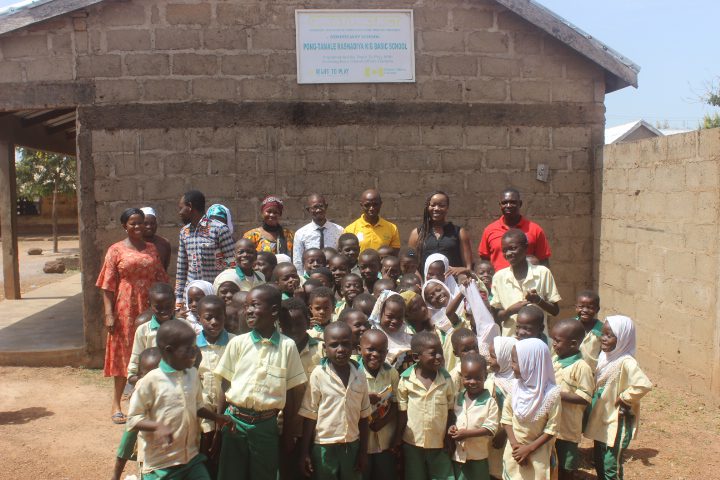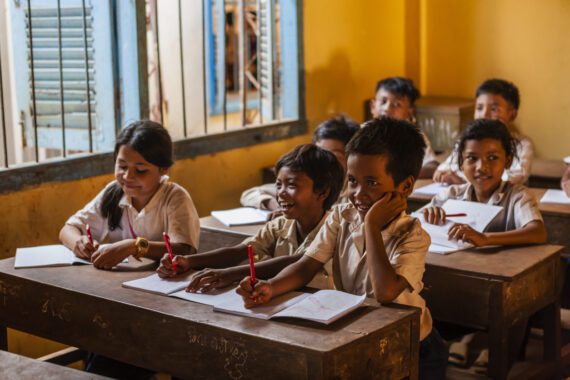“Education is the most powerful weapon to change the world.” At Pong Tamale Rashida Primary School in northern Ghana, these words from the late Nelson Mandela were among many pro-education messages typed in a big bold black font and hung on classroom walls.
But it is hard for a hungry child to learn and then go on to change the world. Bread for the World advocates worked hard this year in a successful effort to persuade Congress to pass the Global Malnutrition Prevention and Treatment Act (GMPTA). Our motivation was that GMPTA more fully centers nutrition within U.S. government food security efforts, providing hope for children who don’t have access to the nutritious diet needed to do their best schoolwork.
When he talked with a writer from The World, 9-year-old Frederick Anaaba, who attends school in Accra, Ghana, explained the problem simply: “There is no food at home. And the people who bring us food have not been coming. If sir is teaching, I cannot concentrate because my stomach will be paining me.”
Reports indicate that the people who bring food to Frederick and his classmates, caterers hired by the government, have not been working because of soaring food prices and lack of promised pay. This means that many students who rely on the national free lunch program are going hungry.
In October, on behalf of Bread for the World, I visited primary schools in eastern and northern Ghana to listen to students, teachers, government workers, and community representatives as they described the realities of food insecurity. Students, especially those in more remote regions, are among the most vulnerable to weaknesses in their local and national food systems, whether these are due to supply chain problems, climate change, conflict, or other obstacles.
The kids from Pong Tamale Rashida Primary School, ages 6-13, come from families who are struggling to support themselves as smallholder farmers. The climate is becoming more arid, or dry, so it is uncertain at best that families will be able to harvest enough food to see them through to the next harvest.
In addition, large numbers of children continue to arrive from countries in the region where times are even harder—in particular, children who have fled neighboring Burkina Faso, where armed conflict intensified in 2022. The founder of Pong Tamale Rashida Primary School has said the school will accept all children who want an education. Leaving no child behind is an important principle, yet it poses a true dilemma. With resources already in short supply, it is becoming increasingly difficult for school staff and community groups to feed and educate the ever-growing student body.
My host for this visit, 4-H Ghana, involves students in cultivating vegetable gardens at their schools. Its methodology of “Learning by Doing” shapes efforts to help students learn how to grow foods that they and their classmates can later eat. Since its inception in 2000, the group has reached more than 67,000 children in schools in the Eastern, Northern, Ashanti, Volta, Greater Accra, and Central Regions of Ghana.
When the school garden produces a bumper crop, Headmaster Shayibu and other staff members sell some of the peppers, corn, and other vegetables in the local market. They use the proceeds to buy school supplies. These include hygiene products for girls who have reached puberty. This is critical to gender equity in education; girls who don’t have these necessities are at greater risk of dropping out of school.
As the U.S. government continues to help improve nutrition among children and youth—for example, through programs such as the McGovern-Dole Food for Education Program and the U.S. Agency for International Development’s localization strategy and nutrition priority countries—its engagement with local community groups will create additional impact. The track record of groups such as 4-H Ghana in building productive relationships with school staff and other stakeholders will be an even more important asset as more refugee children come to school, hopeful that they too can learn and eat lunch.
Abiola Afolayan is senior international policy advisor with Bread for the World.



